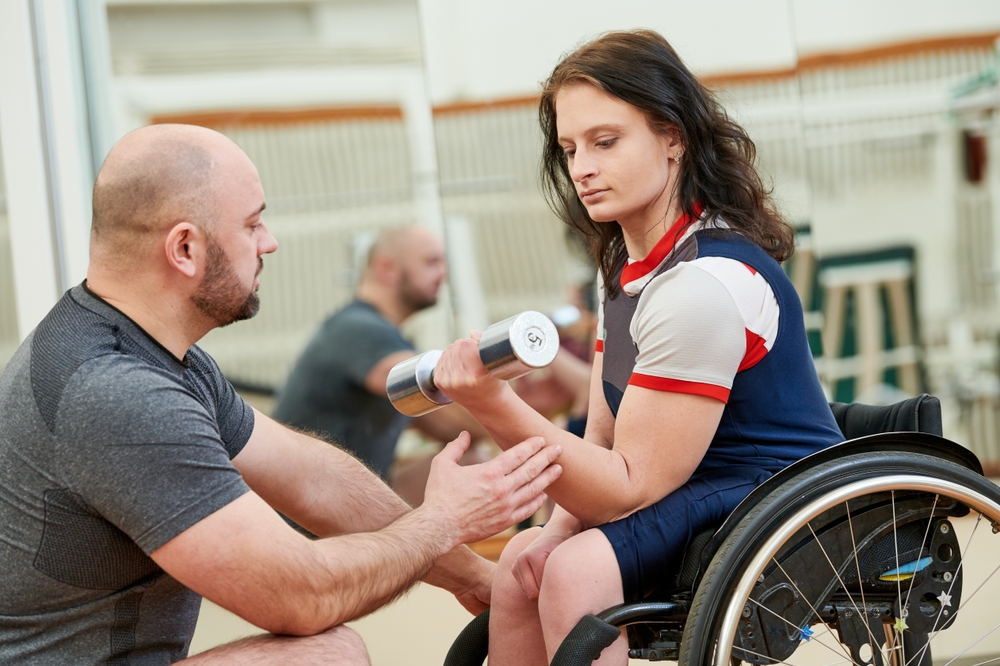Make an Appointment
The National Disability Insurance Scheme (NDIS) provides funding for support and services to Australians with a disability. One important aspect of the NDIS is early intervention, which is designed to support children with disabilities or developmental delays in their early years. Early intervention can help to identify and address issues early, giving children the best chance for optimal development and participation in their communities. In this article, we'll provide an overview of NDIS early intervention, including what it covers, eligibility criteria, and how Physio Inq services can support families and carers in accessing these services.
Table of Contents
What is NDIS Early Intervention?
-Definition of NDIS early intervention
- Importance of early intervention for children with disabilities
- Types of services and supports covered under NDIS early intervention
What Does NDIS Early Intervention Cover?
- Examples of services and supports covered under NDIS early intervention
- Benefits of each type of service/support
- Eligibility criteria for accessing NDIS early intervention
- How Physio Inq services can support NDIS early intervention
What Does ECEI Stand for in NDIS?
- Definition of ECEI (Early Childhood Early Intervention) in NDIS
- Importance of ECEI for children with disabilities
- Role of ECEI in supporting families and carers
- How Physio Inq services can support ECEI in NDIS
What Does NDIS Do for Children?
- Overview of NDIS services and supports for children with disabilities
- Importance of individualized support and planning
- Examples of NDIS services and supports for children
- How Physio Inq services can support NDIS services for children
What is the Criteria for Early Intervention?
- Criteria for accessing NDIS early intervention services
- Importance of early diagnosis and assessment
- Role of healthcare professionals in early intervention
- How Physio Inq services can support early intervention in NDIS
- Common misconceptions about NDIS early intervention
How is NDIS Early Intervention Different from Other Forms of Early Intervention?
- Comparison of NDIS early intervention with other early intervention programs
- Unique benefits of NDIS early intervention
How Does NDIS Early Intervention Support Families and Carers of Children with Disabilities?
- Overview of family and carer supports available through NDIS early intervention
- Examples of NDIS early intervention services that can assist families and carers
- How Physio Inq services can support families and carers in NDIS early intervention
How Can NDIS Early Intervention Help with the Transition to School?
- Importance of NDIS early intervention in preparing children for school
- Examples of NDIS early intervention services that can support the transition to school
- How Physio Inq services can support the transition to school in NDIS early intervention
How Do NDIS Early Intervention Services Align with the Goals of the NDIS Plan?
- Overview of NDIS plan goals and objectives
- How NDIS early intervention supports the goals of the NDIS plan
- How Physio Inq services align with the goals of the NDIS plan
What are the Common Challenges and Barriers to Accessing NDIS Early Intervention Services?
Examples of challenges and barriers faced by families and carers when accessing NDIS early intervention services
How Physio Inq services can help overcome these challenges and barriers
How Can Families and Carers Access NDIS Early Intervention Services?
- Overview of the process for accessing NDIS early intervention services
- How to apply for NDIS early intervention
- Tips for families and carers when accessing NDIS early intervention services
- How Physio Inq services can assist families and carers in accessing NDIS early intervention
How is the Effectiveness of NDIS Early Intervention Services Measured?
Overview of outcome measures used to evaluate NDIS early intervention services
Importance of measuring the effectiveness of NDIS early intervention services
Success Stories of NDIS Early Intervention
Real-life success stories of children who have benefited from NDIS early intervention services
What is NDIS Early Intervention?
NDIS early intervention is a critical aspect of the National Disability Insurance Scheme, designed to support children with disabilities or developmental delays in their early years. Early intervention refers to support and services provided to children aged 0-6 years, with the goal of identifying and addressing issues early, before they become more challenging to manage.
The aim of NDIS early intervention is to improve outcomes for children with disabilities and their families and to support their participation in their communities. This is achieved through a range of services and supports that are tailored to each child's specific needs.
There are three types of services and supports that can be accessed through NDIS early intervention:
1. Early Childhood Early Intervention (ECEI): ECEI is a service delivery approach designed to support families and carers of children aged 0-6 years with developmental delay or disability. ECEI provides information, advice, and assistance to help families and carers access appropriate support and services. The focus is on providing support as early as possible to improve outcomes for children and their families.
2. Early Intervention: These services are designed to support children with a disability or developmental delay to develop the skills they need to participate in daily activities and to reach their potential. Examples of early intervention services include speech therapy, occupational therapy, physiotherapy, and behavior support. Early intervention services are evidence-based, meaning that they are based on the latest research and best practice to ensure that children receive the most effective services and supports possible.
3. School-Age Early Intervention: These services are designed to support children with a disability or developmental delay aged 6-14 years who require ongoing intervention to support their development and participation in education. School-age early intervention services can include therapy services, behavior support, and other supports to help children reach their potential in school and beyond.
Overall, NDIS early intervention is a vital service that supports children with disabilities and their families in their early years. It provides a range of services and supports that are tailored to each child's specific needs, with a focus on improving outcomes and supporting participation in daily activities and their communities.
What Does NDIS Early Intervention Cover?
NDIS early intervention covers a range of services and supports designed to help children with disabilities or developmental delays and their families. Some examples of services and supports covered under NDIS early intervention include:
Assessment and diagnosis: this includes initial assessments to determine a child's developmental needs, as well as ongoing assessments to monitor progress.Therapy services: this includes speech therapy, occupational therapy, and physiotherapy to support children's development and participation in daily activities.
Behaviour support: this includes supports to address challenging behaviours and improve social skills.
Specialist equipment: this includes equipment such as wheelchairs, communication devices, and other aids to support children's mobility and communication needs.
Support coordination: this includes assistance to help families and carers access the services and supports they need.
Each child's plan will be tailored to their specific needs, based on assessments and input from families and healthcare professionals. NDIS early intervention services are evidence-based and delivered by qualified health professionals.
To be eligible for NDIS early intervention, children must meet the disability requirements outlined by the NDIS. This includes having a permanent disability or developmental delay that impacts their ability to participate in daily activities. Children must also be aged between 0 and 6 years, and meet the eligibility criteria for the NDIS.
Physio Inq allied health services can support families and carers in accessing NDIS early intervention services. Physio Inq is a mobile & in-home allied health service that provides in-home and community-based services to people with disabilities. Our team of healthcare professionals can provide a range of services across Australia, including physiotherapy, occupational therapy, speech therapy, and exercise physiology, to support children's development and participation in daily activities.
What Does ECEI Stand for in NDIS?
ECEI stands for Early Childhood Early Intervention, which is a service delivery approach designed to support families and carers of children aged 0-6 years with developmental delay or disability. The ECEI approach is focused on providing early intervention services that are evidence-based and individualized to meet each child's specific needs.
The goal of ECEI is to help families and carers access the support and services they need to help their child develop and participate in daily activities. ECEI is delivered by early childhood partners, who are trained professionals that work with families and carers to identify their child's needs and connect them with appropriate services and supports.
Physio Inq's team of healthcare professionals can work collaboratively with early childhood partners and families to develop individualized care plans and support children's development.
What Does NDIS Do for Children?
NDIS provides a range of services and supports for children with disabilities, including early intervention services, therapy services, equipment, and support coordination. These services and supports are designed to help children develop the skills they need to participate in daily activities, reach their potential, and achieve their goals.One of the key principles of the NDIS is individualized support and planning. This means that each child's plan is tailored to their specific needs, based on assessments and input from families and healthcare professionals. The goal of individualized support is to help children access the services and supports they need to achieve their goals and participate in their communities.
Some examples of NDIS services and supports for children include:
- Early intervention services: as mentioned earlier, NDIS provides early intervention services for children with disabilities or developmental delays aged 0-6 years.
- Therapy services: this includes speech therapy, occupational therapy, physiotherapy, and other therapy services to support children's development and participation in daily activities.
- Equipment and assistive technology: this includes wheelchairs, communication devices, and other equipment to support children's mobility and communication needs.
-Support coordination: this includes assistance to help families and carers access the services and supports they need.
What is the Criteria for Early Intervention?
To access NDIS early intervention services, children must meet the disability requirements outlined by the NDIS. This includes having a permanent disability or developmental delay that impacts their ability to participate in daily activities. Children must also be aged between 0 and 6 years, and meet the eligibility criteria for the NDIS.
The criteria for early intervention services may vary depending on the specific service or support being accessed. For example, to access speech therapy services, a child may need to have difficulty with communication, while to access physiotherapy services, a child may need to have difficulty with mobility or motor skills.
Early diagnosis and assessment are critical to accessing early intervention services. Healthcare professionals can play a key role in identifying children who may benefit from early intervention services and referring them to appropriate services and supports. The earlier a child receives intervention, the greater the likelihood of positive outcomes and improved participation in daily activities.
Healthcare professionals, such as pediatricians, occupational therapists, speech therapists, and physiotherapists, can provide assessments and referrals for early intervention services. They can also work collaboratively with families and carers to develop individualized care plans and support children's development.
How is NDIS Early Intervention Different from Other Forms of Early Intervention?
NDIS early intervention is unique in its focus on individualized support and planning, evidence-based practice, and collaboration with families and healthcare professionals. NDIS early intervention services are tailored to each child's specific needs, based on assessments and input from families and healthcare professionals.
NDIS early intervention is also delivered by qualified health professionals and is evidence-based, meaning that services and supports are based on the latest research and best practice. This ensures that children receive the most effective services and supports possible.
How Does NDIS Early Intervention Support Families and Carers of Children with Disabilities?
NDIS early intervention supports families and carers of children with disabilities by providing a range of services and supports designed to help children develop the skills they need to participate in daily activities and achieve their goals.
Some examples of NDIS early intervention services that can assist families and carers include:
Information and advice: this includes information and advice on accessing NDIS services and supports, as well as information on disability-related topics.Support coordination: this includes assistance to help families and carers access the services and supports they need.
Therapy services: this includes speech therapy, occupational therapy, physiotherapy, and other therapy services to support children's development and participation in daily activities.
Behaviour support: this includes supports to address challenging behaviours and improve social skills.
Respite care: this includes temporary care for children to give families and carers a break from their caring responsibilities.
Physio Inq services can support families and carers in NDIS early intervention by providing in-home and community-based services to children with disabilities. Physio Inq's team of healthcare professionals can work collaboratively with families and healthcare professionals to develop individualized care plans and support children's development
How Can NDIS Early Intervention Help with the Transition to School?
NDIS early intervention can help to prepare children with disabilities or developmental delays for the transition to school by providing services and supports that improve their skills and participation in daily activities.
Some examples of NDIS early intervention services that can support the transition to school include:
- Speech therapy to improve communication skills.
- Occupational therapy to develop fine motor skills and self-care skills.
- Physiotherapy to improve mobility and gross motor skills.
- Behaviour support to address challenging behaviours and improve social skills.
By improving children's skills and participation in daily activities, NDIS early intervention can help to set them up for success in school and beyond.
Physio Inq services can support the transition to school in NDIS early intervention by providing in-home and community-based services to children with disabilities.

How Do NDIS Early Intervention Services Align with the Goals of the NDIS Plan?
The NDIS plan has several goals, including **improving outcomes for people with disabilities, increasing access to services and supports, and empowering people with disabilities to participate in their communities.**NDIS early intervention services align with these goals by providing early access to services and supports that can improve outcomes for children with disabilities, increase their participation in daily activities and their communities, and empower families and carers to access the services and supports they need.
By providing evidence-based and individualized services and supports, NDIS early intervention can help to achieve the following NDIS plan goals:
- Choice and control: by providing families and carers with choice and control over the services and supports they access, and by tailoring services and supports to each child's specific needs.- Social and economic participation: by improving children's skills and participation in daily activities, and by empowering families and carers to access services and supports that can increase their participation in their communities.
- Better outcomes: by providing evidence-based services and supports that can improve outcomes for children with disabilities.
How Can Physio Inq Services Contribute to the Success of NDIS Early Intervention?
NDIS early intervention is a critical aspect of the NDIS, designed to support children with disabilities or developmental delays in their early years. Early intervention can help to identify and address issues early, giving children the best chance for optimal development and participation in their communities.
NDIS early intervention covers a range of services and supports designed to help children with disabilities or developmental delays and their families. Physio Inq services can support families and carers in accessing NDIS early intervention services by providing in-home and community-based services to children with disabilities.
Physio Inq is one of the very first NDIS registered businesses in Australia, operating across the country to provide high-quality, evidence-based services and supports to children with disabilities with our core mobile & in-home NDIS services of physiotherapy, occupational therapy, speech pathology & exercise physiology. By working collaboratively with families, healthcare professionals, and community organizations and service providers, Physio Inq can contribute to the success of NDIS early intervention and improve outcomes for children with disabilities.

Conclusion
NDIS early intervention is a critical aspect of the NDIS, designed to support children with disabilities or developmental delays in their early years. Early intervention can help to identify and address issues early, giving children the best chance for optimal development and participation in their communities.
NDIS early intervention covers a range of services and supports designed to help children with disabilities or developmental delays and their families. Physio Inq services can support families and carers in accessing NDIS early intervention services by providing in-home and community-based services to children with disabilities.To access our services today, whether by making a booking or a referral, simply contact our team by calling 1300 731 733 or visiting our website.
Our knowledgeable and friendly staff are ready to help you with any questions you may have and guide you through the process of accessing their services.
Useful Resources
Maximising Your NDIS Plan with Therapeutic Supports
NDIS Physiotherapy: A Guide to Accessing the Support You Need
What Support Does the NDIS Provide? Your Ultimate Guide
NDIS Transport Funding | Will NDIS Funds Cover My Childs Transport?
Occupational Therapy Role In Physical Disabilities & The NDIS
Inclusivity in the Work Place for NDIS Participants
NDIS service agreement | Balance & Common Sense
Date Published: Friday, March 17, 2023
Locate a Speech Pathology
Service Near me
Get the experience & convinence you deserve to support your or a loved one's allied health needs.
Our Speech Pathology team are currently serving & taking appointments in the following states and regions in Australia:
Need to get into direct contact with ur Client Services team? We're all ears. Call our team directly on 1300 731 733








